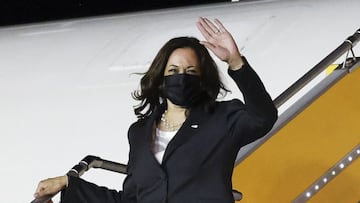Is Havana syndrome contagious? Where is it affecting?
More and more cases of the suspicious Havana Syndrome, first seen in Cuba, have been reported in a growing number of countries around the world.


After the covid-19 global pandemic, efforts have been made to avoid using geographical information when identifying a disease. However, Havana Syndrome has not benefited from these new international norms.
The illness has received more attention in recent days after reports from the State Department showed that a member of Vice President Kamala Harris' staff suffered an "adverse health event."
HARRIS IN VIETNAM: Vice President Harris was asked about the delay of her trip to Vietnam over fears of Havana Syndrome. https://t.co/KqUK2iAypw pic.twitter.com/741pzOvyPJ
— Forbes (@Forbes) August 26, 2021
Thought to have suffered from "Havana Syndrome" in Singapore, the case represents one of the highest-profile since reports first came out in 2016. The VP almost canceled her trip to Hanoi Vietnam after the incident. The State Department has not confirmed that the name of the staff member that fell ill but did confirm that this was not the first case of the bizarre health issue seen in Singapore.
These reports come after more than 130 other cases involving CIA personnel, diplomats, and US military members were diagnosed with the bizarre illness.
Wow: US Embassy in Hanoi says the Vice President’s traveling delegation was delayed from departing Singapore because VPs office was made aware of a report of a recent possible anomalous health incident in Hanoi. Anomalous health incident is what the USG calls Havana Syndrome. pic.twitter.com/1jqNsQMIeW
— Natasha Bertrand (@NatashaBertrand) August 24, 2021
What is known about Havana Syndrome?
Investigations into both the origins of the illness and the syndrome itself and been milled with scandal.
Havana Syndrome represents a new challenge in the relationship between Cold War foes, the United States and Cuba. After five years, no country or entity has been publicly named the responsible culprit, and the cases seem to be growing.
Symptoms
The symptoms are similar to those of a concussion or mild head injury and can include dizziness, pain, and nausea. The around 130 people who have reported symptoms have also reported memory issues, sensitivity to light, insomnia, and other sleep-related issues.
A 2019 study conducted by the University of Pennsylvania found that the brains of those had been altered, including "differences in whole-brain white matter volume, regional gray and white matter volume, cerebellar microstructural integrity, and functional connectivity in the auditory and visuospatial subnetworks.” These findings were found after those thought to have Havana Syndrome had scans of their brains compared to a control group.
The illness is not contagious, but exactly what causes it is also known.
Affected Countries
In 2016 and 2017, intelligence officers and diplomats from the US and Canadian embassies in Havana began reporting symptoms, which later became categorized as Havana Syndrome.
Since then cases have now been reported in more than nine countries including, China, Russia, Poland, Georgia, Taiwan, Australia, and Colombia.
Investigations
Investigations into the origins of the illness have faced many challenges.
In October 2020, reports of botched investigations on the part of the State Department became public. The New York Times reported that the organization, under the leadership of Secretary Mike Pompeo, had “produced inconsistent assessments of patients and events, ignored outside medical diagnoses and withheld basic information from Congress.”
In addition, reports have shown that a lack of inter-agency cooperation between various US government agencies, including the FBI, CIA, CDC, and State Department, has created challenges in investigating its origins. Also, the NYT has reported that depending on where the instances took place, the Federal government-repossessed differently.
Related stories
Following these reports, embassy staff in China reported similar issues. For those in Cuba, diplomats were supported in seeking treatment, but those in countries like China were used their own personal vacation and time off to recover. However, the United States did not take the same approach after cases were seen in China. No investigation was opened, and the State Department opted to call the cases “health incidents” rather than Havana syndrome. The New York Times also reported that this could have been done in an attempt to anger the Chinese government.

